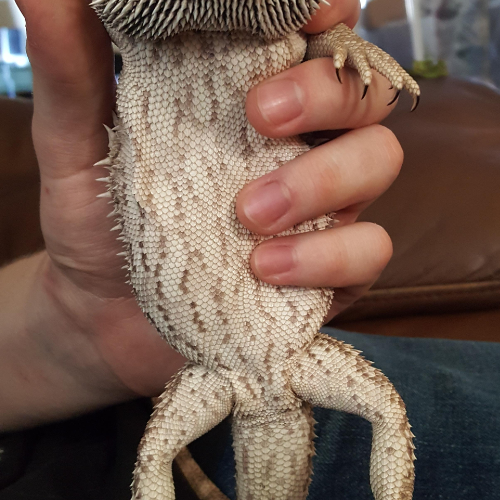In general, cats have strong immune systems and sharp minds and can take care of themselves for the most part. On the other hand, those cats make you question things like, “Is my cat retarded? Should you be concerned about a feline companion that looks to move at a slower rate than they usually would? Cats, however, are susceptible to various potential cognitive problems that might affect them.
Is my cat retarded? Your cat may have mental retardation. Mental retardation is characterized by a diminished level of mental ability in a cat. A cat’s brain can be affected in observable and measurable ways by a number of different disorders, including brain injury and feline cerebellar hypoplasia.

Retardation in Cats
When veterinarians speak to “retardation” in cats, they are often not referring to mental disorders. Instead, they frequently refer to decreased physical development. Human “mental retardation” doesn’t apply to cats because we can’t assess their IQ or grasp their cognitive processes.
Cat Mental Disabilities
There are a number of reasons why a cat could give the impression of being confused, disturbed, or unable to digest information as rapidly as other kitties, and one of those reasons isn’t always because the cat’s IQ is below average. Since cats suffer from many diseases, symptoms may have various causes. These include brain injury or other neurological difficulties, strokes, brain injuries, genetic anomalies, and viral, infectious, and immunological illnesses. A vet can limit down probable reasons to provide an accurate diagnosis.
Retarded Physical Development in Cats
Intestinal parasites such as parasitic worms and tapeworms can be sufficiently severe to limit kittens’ growth. A cat’s development may also be slowed by dysfunctions of the endocrine system, such as hypothyroidism. If a pregnant female kitty is infected with the virus that causes feline distemper, there is an increased risk that her kittens may be born with severe brain damage.
Another viral illness that can cause neurological abnormalities in adult cats is called feline leukemia, which can also restrict kittens’ growth. At the very least, you should have your cat checked for intestinal parasites, and they should be vaccinated against viral infections at reasonable intervals.
Can Cats Be Mentally Retarded
Lower cognitive ability is mental retardation. The syndrome of cognitive impairment can bring about this condition in cats. This syndrome has been observed in cats that are 11 to 14 years old, and the risk of developing it beyond 15 years of age significantly increases.
Kitties can be mentally retarded; however, this is primarily due to age. There is currently no IQ test accessible for felines; nonetheless, there is evidence to suggest that CDS lowers the cognitive abilities of cats.
It may seem like Alzheimer’s disease is present when a feline buddy has cognitive dysfunction syndrome; the symptoms are quite similar. A cat diagnosed with CDS will exhibit the following symptoms:
- cerebral amyloid angiopathy
- amyloid plaques
- Variations in histopathologic appearance
- loss of memory
The symptoms associated with CDS can also be caused by various other diseases affecting kitties. Mucopolysaccharidose may affect a cat’s facial appearance, leading non-vets to conclude the feline is retarded.
What Are the Symptoms of Feline Hyperesthesia?
Your cat may have feline hyperesthesia even if it only exhibits one or even two of these symptoms; however, this will not always be the case. However, consult your vet if you experience short spells of unusual behaviors from this list. If you are worried, don’t wait to take your cat.
- Aggression: Sudden spurts of aggressiveness that disappear after a minute or two might be the first sign of Feline Hyperesthesia.
- Dilated Pupils: Cats have pupils susceptible to light. Your feline companion has dilated pupils if, when exposed to greater light, the pupils do not quickly constrict.
- Excessive lumbar grooming: Cats are known for their excellent grooming habits, but too much can promote hair loss or skin harm.
- Hallucinations: It is common for kitties to have the impression that they see things that humans do not. However, there is an issue when your cat truly perceives things that aren’t there or hears things that don’t exist.
- Trance-like state: Kitties can zone out, although they usually react if you call them. Your cat is said to be in a trance-like condition when it completely ignores you and your surroundings.
- Salivation: Salivation is another term for excessive drooling, which is self-explanatory.
- Vocalization: Vocalization can present itself in the same way as being in heat, or it can just be various noises over lengthy periods.
- Uncontrolled Urinating: Take your cat to the veterinarian as soon as possible if they start urinating in strange places during an outbreak of odd behavior.
- Why Do Cats Bring You Their Kittens? [Full Explanation]
Could My Cat Be Autistic Instead of Retarded
Cats frequently exhibit behaviors that are very similar to those of autistic people. Because your feline companion cannot be mentally retarded, yet they are capable of experiencing anxiety, it is natural to question whether they could also have another neurological disorder, such as autism. Even though there is no evidence that a cat may have autism, autistic behaviors are absolutely possible in cats.
Like autistic humans, cats love snuggling in tight places, are scared by bright lights and loud noises, and are quickly overstimulated. Also, cats are brilliant, prefer regularity, and thrive during periods of hyperfocus.
Things that are typical for a cat are not often seen in people. Therefore, a human being may have autism as a symptom of being neurodiverse, but autistic behavior is simply one more aspect of the typical behavior of your cat. The antics and odd behavior that accompany owning a kitten are all part of the enjoyment. Your cat’s behavior may sometimes annoy you, but it’s also cute and cat-like.
B12 Deficiency in Cats [Complete Guide]
Can Cats Be Born With Down Syndrome?
Down Syndrome is not present in your cat. Due to the absence of the twenty-first chromosome, cats cannot have Down syndrome. To be diagnosed with down syndrome, an individual must either have an additional complete copy of chromosome 21 or a partial copy of it. Without having the chromosome, it is impossible to develop this condition.
Your cat does not have Down syndrome if it exhibits the following characteristics: crossed eyes, a deformed face, small ears, or any other trait you believe is similar to Down syndrome.

Doctor of Veterinary Medicine (D.V.M.) at Nation Taiwan University,Master of Science (M.S.) in Biomedical Engineering at National Taiwan University of Science and Technology




